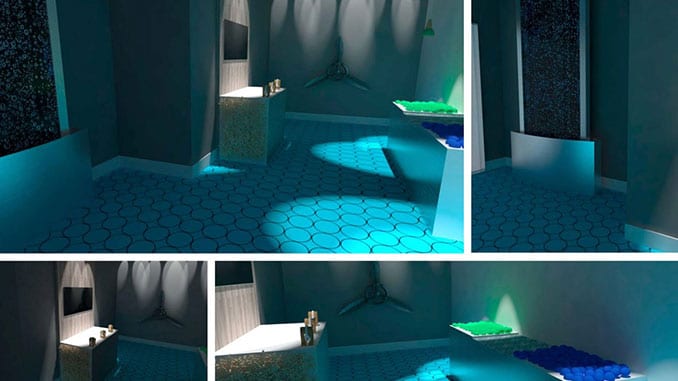
KultureCity partners with Birmingham-Shuttlesworth International Airport to create sensory-friendly space.
Published: February 28, 2019
By: Paige Townley
Since it first started, KultureCity has been doing everything it can to make those with special needs more comfortable in public places. The nonprofit organization has worked with sports arenas, zoos, science centers, museums, and even universities.
Now KultureCity is adding one more public space to the list thanks to its new partnership with the Birmingham-Shuttlesworth International Airport. “The core of our mission is really about inclusion and accessibility for all individuals,” says Michele Kong, co-founder of KultureCity, along with her husband and fellow doctor Julian Maha. “We focus on public places to make them as inclusive and accessible as possible, so airports were a logical next step.”
KultureCity reached out to Birmingham-Shuttlesworth International Airport to work with them to create a sensory room where those with special needs and invisible disabilities – such as autism, dementia, and post-traumatic stress disorder (PTSD) – can retreat to when the atmosphere starts to get too overwhelming.
“The airport can be very overwhelming and loud,” explains Kong. “It can be difficult for those with sensory sensitivities to navigate. We thought we could help provide a reprieve for them as they go through the airport process, a safe space they could visit to decompress before they continue on with the boarding process or airport experience.”
Kong and Maha know firsthand the issues that can arise with traveling with someone who has sensory issues. Their son, Abram, was diagnosed with autism at an early age. Visiting any public place presented problems to the family, which led to the foundation of KultureCity and partnerships with all sorts of public institutions to create better ways for those with sensory issues to participate.
It was a natural progression to take on the challenges of an airport as it presents all sorts of challenges for someone with special needs. First of all, it’s something outside of their typical routine, so that already creates a level of anxiety and stress for the individual. “Beyond that, airports are busy, loud and crowded with long lines,” Kong adds. “All of that combined means there are different senses hitting you from different angles, whether visual, sense of smell, or sense of hearing. That can be extremely dysregulating, which can be a huge trigger for someone with sensory issues.”
To offset those stresses, the new sensory room at the airport focuses completely on sensory sensitivity for individuals if they become overwhelmed with sensory inputs. The components of the room will vary, but it will include a touch wall for individuals with textile sensitivity and a bubble wall that features columns of bubbles, which is soothing to the senses. It will also be a room that’s much quieter than the rest of the airport.
“We know that air travel can often be a stressful and overwhelming experience for individuals with autism or other sensory sensitivities,” says Sylvester Lavender, Birmingham Airport Authority’s interim president and CEO. “The opening of our sensory room is one of the ways we’re showing our commitment to passengers by making time spent at the Birmingham-Shuttlesworth International Airport an easy, convenient, comfortable, and calming experience. We hope this new room will aid in breaking down the barriers that can prevent families from flying.”
The sensory room is located towards the end of Concourse B, near the area where it connects to Concourse A. “We’re so excited that Birmingham-Shuttlesworth International Airport is going to be our first airport,” says Kong. “They will be the pioneers from an airport standpoint. We are proud to partner together to provide a room for the community that is going to help so many individuals with a range of special needs. The impact is going to be wide, and we’re thrilled it’s going to be in Birmingham.”
Paige Townley is a Birmingham freelance writer.
